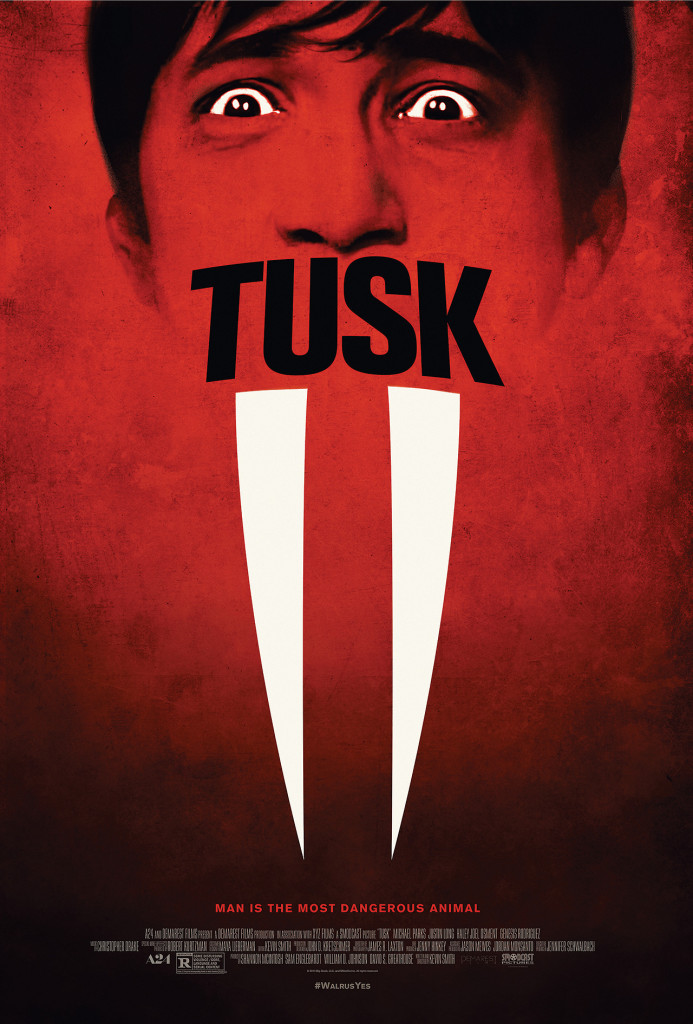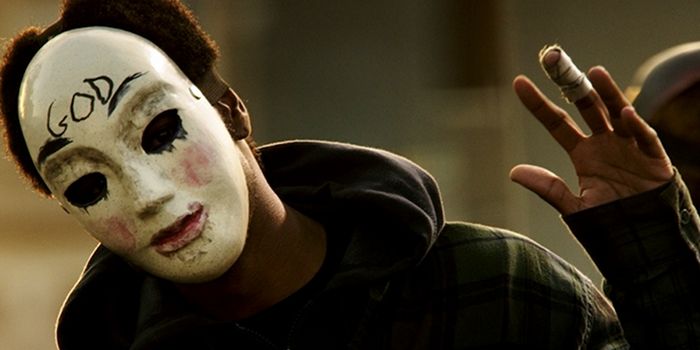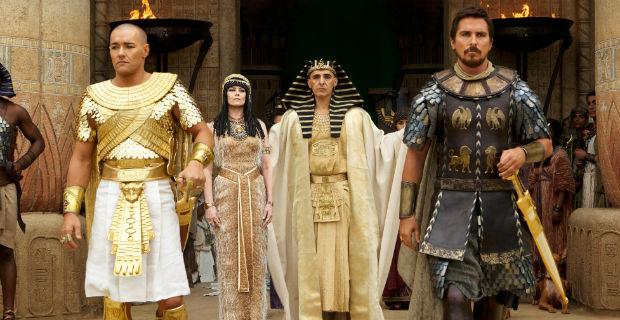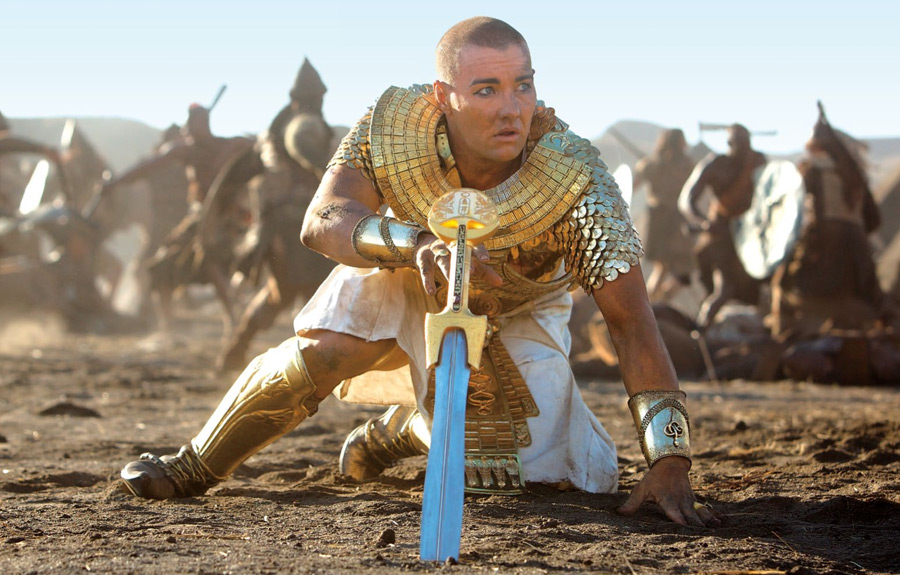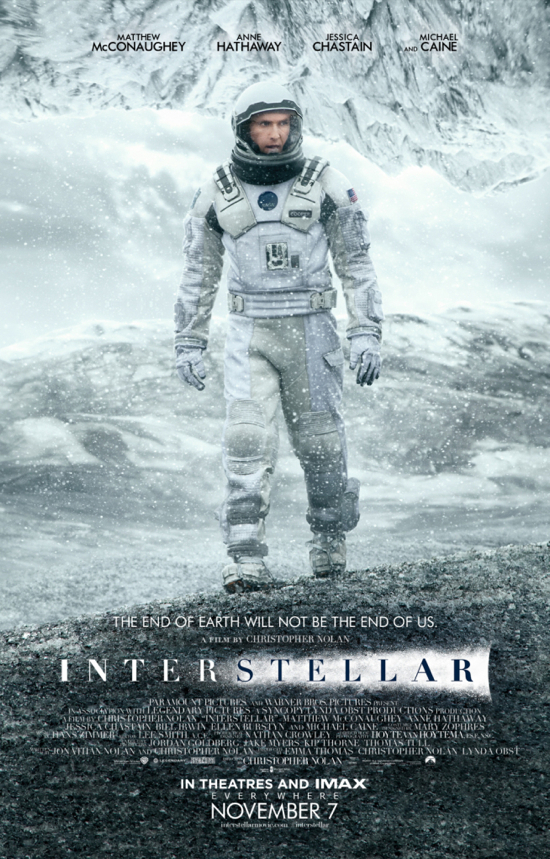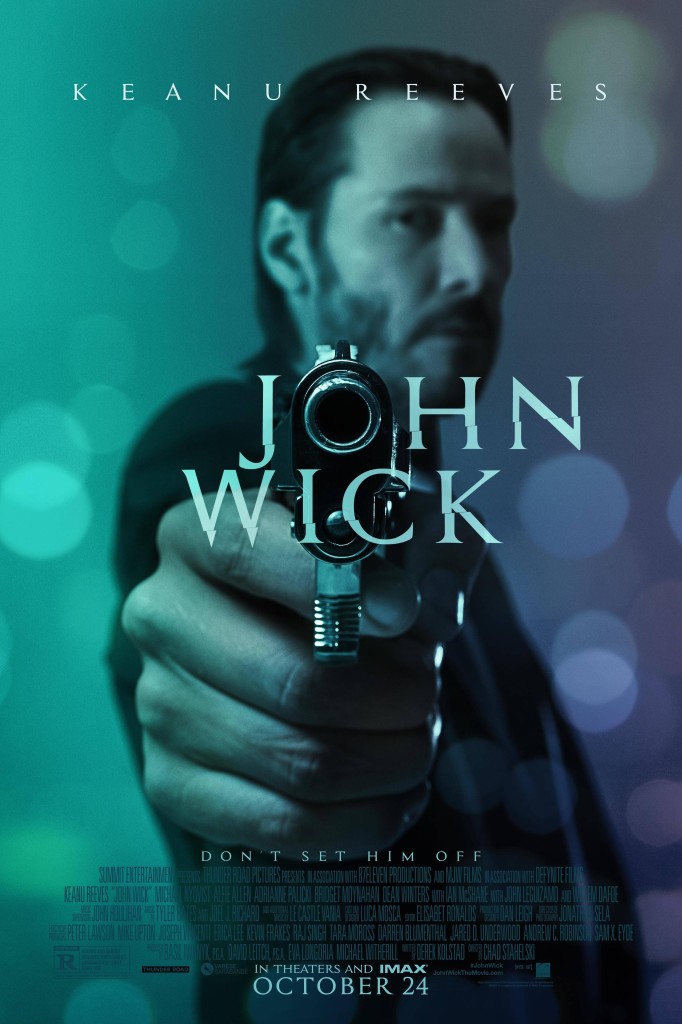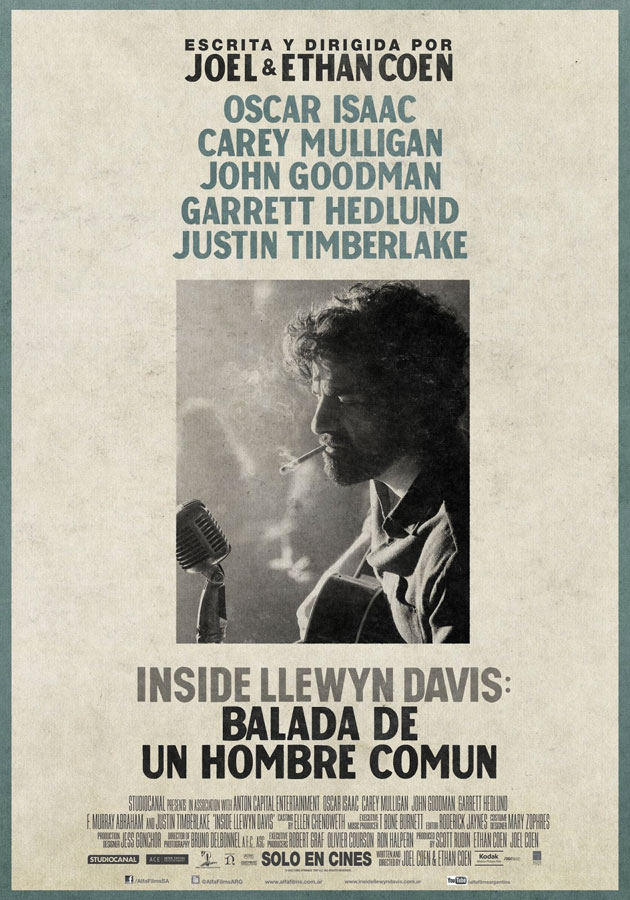Search Results for: the wall
It’s a Mish-Mash Monday, my friends. With the season tissing to be jolly, there is much to look forward to. For instance, I’ve put a Playstation 4 on my Christmas list. I haven’t had a video game system in five years since a good game can easily eat up an entire 12 hours if you’re not paying attention. And I don’t have the time.
But with more and more kids opting to play video games over seeing movies, I have to see what all the hubbub is about. What are these games offering that movies can’t? Would love to hear gamers thoughts on this. I mean, what’s the storytelling like in video games? Is it good? Does it compete with film? Or is it just an exposition fest? Enough to get you from one level to the next?
Speaking of storytelling, I watched Kevin Smith’s latest, Tusk, this weekend. Smith has been upfront that the movie hasn’t done well, yet I’ve heard lots of people say this is Smith’s most interesting work, maybe ever. That was enough to get me on board, Justin Long or no Justin Long. For those who don’t know anything about Tusk, it’s about a podcaster who likes to interview weird people. He eventually finds a reclusive rich man and goes to visit him, only to find out that the man plans to turn him into a walrus, kookoocachoo.
The movie starts off pretty strong. The main character, Wallace, was more likable than I expected him to be. But what bugged me was that, the longer the film went on, the more apparent it became that Smith hasn’t grown as a writer AT ALL.
There’s a scene early on where Wallace is flying back from Canada (he’s just interviewed someone up there), and he has a little dust-up with the Canadian airline checker. The scene lasts somewhere between 8-10 minutes.
Let me repeat that: THE SCENE LASTS SOMEWHERE BETWEEN 8-10 MINUTES!
Typically, a scene this insignificant (getting on a plane) would last 30 seconds. Some writers would probably skip it altogether and cut to Wallace back in America. However, if there’s a plot point or a story reason why the scene needs to happen, you might make the scene 2 minutes, 3 minutes tops. NOT 8 MINUTES!!!!
So what happened in that 8 minutes? Guess. Wallace and the goofy airline checker get into a goofy conversation about Canada. Wallace accidentally insults Canadians, the checker gets upset with him, and then it’s classic Kevin Smith back-and-forth dialogue for the remainder of the scene.
This shows how little Smith has evolved since Clerks. Clerks was a movie built around that kind of dialogue – two bored guys with nothing going on arguing about shit. So in that movie, the long scenes of dialogue at least made sense.
But you’re not writing Clerks anymore. This is supposed to be a horror film, a horror film with some comedic elements, but still a horror film. And you’re still putting 8 minute babble-banter scenes in it?? And again, I’d go with it if there was relevant story information in the scene. But there was none. It was literally jokey-jokey time for 8 minutes straight. This is why people aren’t trusting Smith these days. You have to evolve, but more importantly, you have to change the way you write according to the genre.
At least Smith’s problems aren’t as bad as Sony’s. For those who haven’t heard, Sony Studios was hacked and tons of their internal documents were exposed online. There’s a lot of fascinating information in them, including what their movies ultimately make after every expense is paid off.
Studios NEVER want ANYONE to know this information because if they find out, actors, visual effects companies, producers, writers, agents, everyone can use it against you in negotiations. You can no longer say, “Oh, we have to pay out all this money for distribution and advertising and backend and blah blah blah, that’s why we don’t have enough to pay you.” Because now people know EXACTLY how much you make on your movies.
But the thing that really struck me was how much all the Sony employees hate Adam Sandler movies. They all consider them to be the bottom of the barrel as far as entertainment, and each of them makes it clear that they want the studio to take more chances, to create more original material. They’re creatively miserable for having to churn out these – well, let’s put it bluntly – pieces of excrement.
The reason this is news is because everyone on the outside assumes that everyone on the inside is a stupid robot who doesn’t care about movies. In actuality, it appears that everyone hates making bad movies, probably even the studio head herself. But if these movies (like Grown-Ups 2) bring back a return, what can the studio head do? They don’t really have a choice but to keep making them.
I mean put yourself in the studio head’s position. You have a parent company beholden to their shareholders. You don’t get the choice to play fast and loose with their money. Every decision has to be calculated. And if the last Adam Sandler movie made money, you have to say yes to whatever movie he wants to make next. If you don’t, your bosses at Sony are going to be asking ‘what’s up?’
So it’s not that the people in charge of these companies don’t want to make daring movies. It’s that they don’t work in a system that will allow it. If we want more innovative films, we have to change the system, and that means somehow dissociating the parent companies from the studios. I don’t know how that happens.
But that brings me to my next question. Is the problem really as bad as we think?
As I noted last week, my brother is a non-Hollywood family guy who lives in Portland. And over Thanksgiving, he was the one in charge of getting the movies. So he went to the store and he picked up “The Purge: Anarchy.”
Whereas in the first film a family must deal with The Purge from inside their home, in the sequel we experience the Purge outdoors in all its glory, following a group of characters as they try to make it to safety on a night when every person outside is trying to kill you.
I lost interest quickly. It just seemed aimless. The same thing was happening over and over again. No variety. No purpose. No attempt to evolve the storyline. Just straight up people in masks killing other people.
But my brother LOVED IT. He thought it was great. “What did you like about it?” I asked. He pointed out the awesome scene where some guy in the back of a semi truck propped up a Gatling gun and mowed down any person he saw. “That was awesome,” he said.
The more I thought about this reaction, the more I realized just how different myself and my brother see movies. I watch somewhere between 3-4 movies a week, along with reading a ton of screenplays. He, on the other hand, watches maybe one movie every two months.
To me, I’m looking for a movie that’s different from the same old stuff I always see, something innovative, something with a fresh take. My brother never has to worry about that. He watches movies so infrequently that finding something “different” isn’t part of the equation. For him, he just needs something entertaining to take his mind off all his responsibilities for two hours. And a movie like “The Purge: Anarchy” fits the bill perfectly.
To this end, I wondered if I was looking at it all wrong. I’m focused on finding movies and scripts that will impress the Hollywood guy. The problem is, the Hollywood guy isn’t the one who will be paying $12 to see the movie. That’s going to be a guy who sees six movies a year. And someone who’s seeing six movies a year is going to see a movie like Transformers 4 as a relaxing way to get out of the house and turn your mind off for a few hours. I mean, all of a sudden, Adam Sandler movies begin to make sense.
So how does a writer process this when writing a screenplay? Because the system has been exposed for having a major flaw. Your screenplay has to be liked by two totally opposite sets of people in order to get made.
When I used to teach tennis, I’d occasionally get someone who wanted a semi-private lesson consisting of himself and his young son (usually between 4-6 years old). I dubbed these lessons “lessons from hell” because there is no way to teach an intensely strong, coordinated adult and a barely-able-to-stand tiny child, together. Yet this is exactly what you’re being asked to do when writing a screenplay.
I think that this is why Christopher Nolan is thriving right now. He gives both audiences what they want. For the Hollywood people, he makes them think. But he still gives the average audience member the big fun set piece stuff as well. His movies offer the best of both worlds.
That might be the best insight into how to write scripts. Write something concept-driven, something that would get mass audiences excited, but don’t write the stupid version that ends up on screen. Write the slightly higher-brow version, the kind that excites a reader who reads 15-20 scripts a week. If you get past them, the development process will dumb down your script for mass audience appeal anyway. But you don’t have that luxury at the start. You have to aim higher to get it past the gatekeepers.
That’s how I see it anyway. What do you guys think??
Genre: Period
Premise: Moses takes revenge on his cousin Ramses after being cast off from the city he was supposed to help rule.
About: The biblical epic trend continues! We had Noah. Now we’ve got Moses. It’s a good bet that J-swizzle is getting his own movie soon. If you’re like me, you have no idea what any of this means. The Bible is one giant collection of words like “overfloweth.” Consider my cup confused. Exodus comes out in three weeks, stars Christian Bale as Moses and Joel Edgerton as Ramses. The film was directed by Ridley Scott.
Writer: Steve Zallian draft (previous drafts were written by Adam Cooper & Bill Collage)
Details: 7/6/13 draft – 132 pages
This wouldn’t be on my radar if it wasn’t for Steve Zallian writing this draft, one of the few screenwriters who’s worth the dough you pay him. The question is, can his writing overcome a film that has the special effects team that pixel-poked Dracula Year-Zero? I mean we know the guy’s a good writer. But you can’t write, “Don’t use bad green screen” in a slug line, can you?
Hey, here’s an idea for Hollywood. You’ve got this whole “Universe” approach going now. First it was Marvel superheroes. Then it was DC superheroes. Then it was Star Wars. Universal’s monsters are setting up their own universe.
Why not get some Bible Universe up in hurr!? You don’t even need the rights. I’m pretty sure the Old Testament is public domain by now (although I’m sure Disney’s trying to change that). Jesus was basically a superhero anyway, right? Came back from the dead if I’m not mistaken. Eat your heart out, Wolverine. Actually, I think I know why no one’s hopped on this chariot yet. The Bible’s stories don’t exactly lend themselves to Hollywood structure. As you’re about to find out with Exodus.
Exodus starts out strong. It’s 1300 B.C. The current Egyptian Pharaoh, Seti, is trying to decide who’s going to succeed him. On the one side he’s got his son Ramses, the hands on favorite. On the other, his nephew, Moses, who’s clearly the better leader.
One day during battle, Moses saves Ramses’ life, and because a prince is never supposed to need saving, Ramses doctors the history scroll to omit Moses’s act. This pisses Seti off, and has him seriously considering making Moses the next Pharaoh.
But then Ramses learns that Moses is the offspring of slaves! His whole life has been a lie. So Ramses casts him out of the city, and Moses goes on a spiritual journey where he becomes, of all things, a sheepherder.
One day while herding, non-believer Moses bumps his head and sees God, who tells him to go back and save all of Ramses’ slaves! Ramses threatens Moses once he arrives, so Moses uses his new God-like powers to turn the sea red, send disease at Ramses, rain down hail, and kill all of Ramses’ crops.
But it isn’t until Ramses actually gives Moses his slaves that Moses will face his most difficult test – getting all 400,000 of them home alive.
Whenever you write a swords and sandals pic, the danger is in getting lost in the grandiosity of it all. It can be scary stuff, trying to juggle so many characters and locations and subplots and passages of time. So your first order of business is to FIND YOUR CORE. You need to find what your story is REALLY ABOUT and place that front and center so the reader has something to grab onto.
With Exodus, that’s the relationship between Ramses and Moses. And Zallian (along with the earlier writers) does a really good job with this. All the cousins’ early interactions are laced with tension, a sub-textual jockeying for the throne. Remember that you want all your scenes to contain some element of conflict, tension, or suspense. We see that here.
And Moses was a really strong character overall. There’s this early sequence where he’s sent off to check on the slaves where he comes in contact with the slave king, Hegep. Hegep is a greedy car salesman type who has no respect for Moses and treats him like dirt the whole time he’s there. This is a writing trick we’ve talked about before on Scriptshadow. If you want to make us like your hero, put him around an asshole, someone who takes advantage of or disrespects him. We’ll immediately gain sympathy for your protag.
So things seemed to be going well. Strangely, however, this is the last moment in the script that contained any structure. We had this clear goal where we knew what Moses had to do and why he was doing it. But once he got back from the slave trip, the script turned into one of those slip and slides you see in the heat of summer, the screenplay equivalent of a runny nose.
Moses is cast out of the city and then sort of wanders around for awhile. He eventually finds a small farm and hangs out there for ten years. Then there’s a storm where he sees a burning bush (why is a burning bush such a big deal by the way? Isn’t it easy for a bush to burn?), and now, instead of clearly defined plot points guiding the story, we’re being pushed forward by symbols and ideas.
This is why clear goals and clear mysteries are SO IMPORTANT in screenwriting. When you tell us what our character needs to do and why, we feel a part of the story, like we know what’s going on. Seti says go find out why the slave owners are complaining. So we know that Moses needs to find out why the slave owners are complaining!
Where’s the goal in stumbling around on a farm and seeing a burning bush? It just felt… random. And I don’t know if that’s because Zallian was following the bible story or made the choice himself. But we needed structure here.
My guess is that Zallian was limited by the bible. 2000 years ago, they didn’t have 3rd acts with heroes overcoming their flaws right at the climactic moment of the story. Nor did everything end in an elevated battle. And that’s where Exodus really falters.
Ramses gives Moses his slaves and tells him to leave. And so the whole climax of the film is to… run away? Try to sell that on a modern-day project. I get that the climax here had to be the parting of the Red Sea, but even that was anti-climactic, as the parting was the slaves waiting for 12 hours until the tide made the sea shallow enough to walk across.
Satisfying character development also had to be sacrificed due to the Bible text. One of the storylines here was that Moses had no faith. He didn’t believe in God. Ideally, then, you want to play that out during the big Red Sea moment, where he had to believe in God to part those waters. The ultimate test of his faith and his flaw.
But we’d already spent the last 45 pages watching Moses use God to tear apart Ramses’ empire. So his battle with his faith was never in question by the time the Red Sea arrived, leading to a heck of an anti-climax. This is why Bible stories are so tricky. You can’t change the Bible to make the story better. You’re stuck with what they give you. And often that’s at odds with what mainstream audiences expect.
But the truth is, this script lost me all the way back in the second act. You have to recognize that period pieces are the genre most susceptible to becoming boring. It’s not like a comedy where a good joke can bring the reader back in, or horror where a good scare can do the same. If you get complacent and let the story slip away from you – meaning NOT MUCH HAPPENS for too long a period of time – the reader’s eyes will glaze over and they’ll stop caring.
Once Moses got to that outpost and became a sheepherder and just hung around all day, that was it for me. There wasn’t enough happening in the story to keep me invested. It’s true that period pieces need their “downtime” scenes, but that never means the scenes shouldn’t entertain. It’s your job to know when things are getting slow, and to look for ways to keep those scenes entertaining, as tough as it might be.
I still remember the scene in Braveheart where the two new Generals were brought in. The story was between big battles and could’ve easily gotten bogged down in a boring sequence. Instead, the next scene showed William Wallace hunting, and we find out one of the generals is an assassin here to kill him. The rest of the scene plays out with the second general saving Wallace’s life. That scene energized a potentially boring section.
Exodus started off strong, but ended like a day at church, with you discreetly checking your watch as the pastor prattled on.
[ ] what the hell did I just read?
[x] wasn’t for me
[ ] worth the read
[ ] impressive
[ ] genius
What I learned: Find your CORE for your period piece, which is almost always a key relationship between two characters. Here, it’s the relationship between cousins Ramses and Moses. Whenever you’re lost in your script then – things have gotten too big or too out of control – go back to that core. That’s your real story. Everything else is secondary.
P.S. If anyone wants to share their keys to making swords and sandals scripts (or period pieces in general) work, please do. The difficulty level on these scripts is so high. Any help will do.
Get Your Script Reviewed On Scriptshadow!: To submit your script for an Amateur Review, send in a PDF of your script, along with the title, genre, logline, and finally, something interesting about yourself and/or your script that you’d like us to post along with the script if reviewed. Use my submission address please: Carsonreeves3@gmail.com. Remember that your script will be posted. If you’re nervous about the effects of a bad review, feel free to use an alias name and/or title. It’s a good idea to resubmit every couple of weeks so your submission stays near the top.
Genre: Biopic
Premise (from writer): After the entire Kringle clan is murdered, Santa’s illegitimate son is forced to save his least favorite holiday from a menagerie of supernatural fuckwits.
Why You Should Read (from writer): My name’s Otis J. Kringle and I’m not a screenwriter — I’m fucking Santa Claus. Hang on, that came out wrong, as I am not actually “fucking” Santa — that would be weird and (as you’ll see) necrophilia. More like, I AM Santa Claus. I didn’t used to be, mind you. Truth be told, I’ve always considered Christmas to rank somewhere between getting a colonoscopy from Edward Scissorhands and watching FAILURE TO LAUNCH on a neverending loop. But alas, events unfolded that led me to pick up the jolly red mantle, events like stealing a UPS truck, getting thrown in jail, stepping in reindeer shit, throwing down in fisticuffs with Frigid Bitch and Jack Frost, riding flying lions, massive mall sing-a-longs, things of this nature. I know, right? I was pretty amazed, too. So amazed, I felt the need to share and find an outlet for my story (and movie, because who doesn’t love a new Christmas flick?), namely ScriptShadow. What can I say — I read your site, love the shit out of your site, and as far as I’m concerned, this makes it to a Friday review, everybody who reads your site will be put on the Nice List this year. Even Grendl. I know when you’re sleeping and when you’re awake, — Otis J. Kringle
Writer: Otis Kringle
Details: 97 pages
It’s rare that we get a screenwriter who writes a story based on his own life, which means we should consider today a treat. What makes this even specialer is that our writer appears to be related to Santa Claus. I’m still working on verifying this but I’m 2-4% sure that it’s true. And with the Christmas shopping season starting up next week, what better time to celebrate a Santa-inspired screenplay? Or a Santa-gets-slaughtered-inspired screenplay?
Now I must say that all this murder and mayhem hinted at in the logline has me worried. I’m a Christmas purist. I watch It’s A Wonderful Life every year on Christmas Eve. I download that Band-Aid song and listen to it on repeat. I even purchase egg nog despite the fact that I hate it, just so I can look at it in my fridge and feel festive. Is Otis Kringle about to ruin all that?
In a word, yes.
In another word: “fisting.” As in we’re told on page 1 to go fist ourselves.
Now I’m no doctor, nor do I play one on the internet. But I’m pretty sure that’s physically and biologically impossible. Gonna do a WebMD search on this later to make sure.
Our loser hero, Otis Kringle, the man responsible for telling us to fist ourselves, happens to be the illegitimate son of Santa Clause, who apparently slipped down Otis’s mother’s chimney many years ago, injecting her with many presents.
This will become important later after a dingbat elf in the North Pole named Dunbar Capp sings a song from a cursed book called the Santanomicon. He thinks he’s being jolly. But all he does is release Jolly Klaus, Santa Claus’s long lost half-uncle.
The axe-wielding Jolly slices up Santa along with the rest of his family, then demonizes Rudolph so that Rudolph can slaughter all of Santa’s reindeer.
Lucky for the planet, Dunbar and Blitzen get away and fly to America, where they approach Otis, the bastard child of Santa, to inform him that he’s the only one who can save Christmas. And the planet.
All he has to do is sing a song from the Santanomicon and Jolly will be sent back to the Badlands for another 1500 years. The problem is, all the songs are in another language, which poor Otis can’t read.
Complicating measures are Jack Frost and the Frigid Bitch, an oversexed couple who have likewise been stuck in purgatory for hundreds of years. Being freed allows them to have sex again and boy do they take advantage of it, even singing a song about all the sexual positions they’re going to enjoy together, which number at least a hundred.
Will Otis Kringle, who tells his story in first person, except when we’re around other characters, be able to save the day? Will you be able to save yourself after venturing into a story that introduces the world to the term “cunt brisket?” There’s no way to know for sure unless you read Otis Kringle Hates Christmas. And then fist yourself.
I hear that this Christmas, NBC will be debuting a live Peter Pan musical inspired by wholesome family values and the power of song. If, for whatever reason, this show gets cancelled, I’m sure “Otis Kringle Hates Christmas” can take its place. They’re practically the same movie. I mean, Peter Pan has a song about taking a literal exposition dump, doesn’t it?
Look, I think Otis has problems. He seems a tad angry. And that anger has manifested itself in a script more focused on shock value than story. Shock is a funny thing. It can work in small doses. One need look no further than South Park to see that. But it’s hard to make work if that’s the only thing you’re giving the audience for two hours.
South Park is actually a good gauge for how to make shock work. Underneath all its shocking humor, there’s an undeniable love South Park has for its characters. That love translates over to you loving the characters, and going along with whatever shenanigans, no matter how crass or dirty, the characters find themselves in.
I’m not sure Otis Kringle the writer has that same love for his characters (which is ironic, considering he is one of the characters), which prevents us from ever really connecting to Otis, Dunbar, and Blitzen. We get crass instead of heart. Swears instead of cares. And that creates a wall between reader and character that extends not just to the story, but to the comedy.
And this is why comedy’s the most subjective of all the genres. Everybody needs something different to laugh.
I need to care about the characters to laugh. I believe laughs come from stakes, come from us caring what’s on the line for the characters. And we can’t care about what’s on the line if we don’t connect to the characters in the first place. For example, in Neighbors, I really FELT the importance of our hero’s need to raise a family. So I cared that this frat next door was disrupting their world. And that’s what allowed me to laugh when they kept failing at their goal.
But I concede that not everybody feels this way. For a lot of people, a funny joke is a funny joke, regardless of whether you give a shit about the people involved in the joke. Otis Kringle graduated from the Kevin Smith school of comedy, where the jokes are based on nasty, on disgusting, on shocking and awing your reader. I’m not going to put that comedy down. All I can say is it’s not for me.
With that said, this script has a mission. And that’s to get your attention. And the easiest way to get people’s attention is to be loud and bold, and Otis Kringle is the loudest script I’ve read in years. Throw in some rule-bending (first person writing!), a bizarre mythology, and some snowflake-infused writing talent, and this script will find some fans.
It’s just that for me to become a fan, I have to see that love between writer and character. I need to feel at least some depth in our hero. Sometimes as writers we get so carried away with trying to do that one thing we set out to do when we conceived of the script, that we overlook other basic storytelling components required to make a script work. Otis may have had tunnel-vision in trying to make this that big attention-grabbing script, preventing him from remember that you still have to move people, you still have to make the audience feel something at the end.
The part of me that loves writers who take chances gives this a Millineum Falcon Lego Set present. But the script purist in me gives this a 25 dollar gift certificate to Best Buy. Hey, at least it’s not coal, right??
Script link: Otis Kringle Hates Christmas
[ ] what the hell did I just read?
[x] wasn’t for me
[ ] worth the read
[ ] impressive
[ ] genius
What I learned: It’s really hard to keep a reader invested for 100 pages on shock alone. I’m sure it can be done, but that means continually one-upping yourself with something even MORE shocking every 10 pages. I wouldn’t want that assignment.
The value of screenwriting contests has been debated for years. I’ve gone on record as saying they’re an important tool in helping gauge where you are in your journey. If you’re not at least making the Quarterfinals (top 50 to top 100) of a screenplay contest, you might want to think about getting some personal feedback on your script to find out what you need to work on.
But don’t feel too bad if you’re not lighting up the contest circuit. Believe it or not, there are huge movies out there, movies that have made millions of dollars at the box office, that wouldn’t have even made it out of the FIRST ROUND of a screenwriting contest. Which just so happens to be the subject of today’s post.
That’s right, we’re going to look at ten movies, each of which were either critical or box office successes, that would’ve been laughed out of the big screenwriting contests. Some of these are obvious while others might surprise you. Commenting on these movies will be our hypothetical contest script reader, whose duty it is to explain why the script didn’t make the next round.
Now remember, you have to see these scripts as they’d be seen by the reader. These are naked scripts that have not become successful movies. They don’t have hot directors or actors attached to them. They’re scripts just like you would submit to a contest. With that in mind, let’s check out the list.
Transformers: Dark of The Moon – “Way too long with a story that’s painfully unfocused. Not a single character feels authentic or multi-dimensional. An over-reliance on crass humor, which becomes tired quickly. Way too much emphasis is placed on set-pieces, which would be okay if we understood why they were happening, but often we don’t. Pass.”
Annabelle – “Any horror script that contains a scene where a record player starts playing old timey music on its own is a surefire bet that there will be little if any originality on display. You may as well have a cat jump out of a cabinet while your character’s gone upstairs to ‘check out a noise.’ Horror’s number one enemy is cliché and when a writer shows not even a casual interest in avoiding the C-word, you know you’re in for a long predictable ride. Also, there isn’t a single memorable scare in the script. Death for a horror screenplay. Pass.”
The Monuments Men – “A strange unfocused tale that doesn’t always seem to know what it wants to be. Is it a drama? Is it a comedy? The idea is an interesting one, a story we’ve never heard before about World War 2. But the execution is all over the place. Why, for instance, did the writer choose to split our group of men up for the majority of the story? The group dynamic was the strongest part of the screenplay. To not recognize and take advantage of that shows a writer still learning the craft. It’s too bad. This could’ve been good. Pass.”
Interstellar – “Has the reckless feel of a first or second draft that the writer decided never to perfect. The dialogue is way too expository and on-the-nose, two signs of a beginning screenwriter. For example, lines like, ‘The MRI machines we no longer have could’ve spotted my wife’s cancer before she died.’ Yikes. While there are some interesting ideas about space exploration and time tacked into this overlong second act, everything comes crumbling down in the finale, when the writer tries to wrap up several corners he wrote himself into with trippy pseudo-science explanations. Time-travel is one of the hardest plots to get right, and this writer shows no dedication to figuring it out. Could show some promise with work. As it stands, pass.”
John Wick – “This is one of the most laughable set-ups for an action film I’ve ever come across. The main character, a retired hit man, goes after the Russian mafia because they killed his dog. Outside of a few fresh ideas in the second act, which include a hotel that deals exclusively with hit men, John Wick is bogged down in cliché after cliché. For example, must every action script end in an industrial location? Pass.”
Elysium – “Yet another sci-fi screenplay where the writer fails to explore his world on anything other than a cursory level. There’s no sense of scope at all. People are broken down into over-simplified “haves” and “have-nots.” An orbiting city has a half-ass plan in place for renegade ships breaking through, despite it being a common occurrence. Our main villain, a sword-wielding futuristic samurai type seems to have been ripped from another more fantasy-driven film, exemplifying the lack of foresight put into the script. He’s also bad for the sake of being bad, one of the easiest ways to spot a rushed draft. Feels like we’re five or six drafts away from this achieving its mark. Pass.”
The Counselor – “Script seems to put no value on clarity or narrative focus, often leaving the reader wondering where they are in the story, why things are happening, and what the characters plan to do next. I can’t tell if this was a deliberate choice, with the writer aiming for a high-brow audience who can read minds, or a first-time screenwriter who doesn’t yet understand how to make his plot points clear. Either way, the script completely falls apart when it reaches its apparent goal, the Counselor’s deal going bad, only to make us stick around for another 40 pages, where we’re forced to watch the main character wallow in pity. Writer must learn, amongst other things, that when you’ve reached your destination, the journey is over. Pass.”
Godzilla – “Who is the main character in this script? We’re led to believe it’s army man Ford Brody. But Brody doesn’t make a single decision throughout the entire screenplay. He instead follows a number of other people around and does whatever they tell him to do. Passive characters are the worst characters to lead a story, and Godzilla shows us why. Without a dominant character pushing us forward, we have no one to latch onto, and therefore no one to care about. Script also has a clunky opening, where we watch one parent’s death, only to go through twenty more pages of the other parent before their death. All of this before Brody is formally introduced. One wonders why not just start with Brody and look for ways to imply the backstory instead of show it. The script also spends so much time explaining where Godzilla is, what he’s doing, where he’s probably going next, and how to stop him, that there isn’t any time left for an actual story to develop. You’d think all the explaining would at least go towards setting up big memorable Godzilla set-pieces, but Godzilla only has a couple of featured scenes. A bizarre script that seems intent on avoiding everything that makes a story good. I can’t in good conscience send this one to the next round. Pass.”
Inside Llewyn Davis – “One of the stranger scripts I’ve ever read. The dialogue appears confident, even strong in places, yet there’s no story here to speak of, unless you count a man stumbling through the deliriously morbid world of folk music a story. The main character is such an asshole without a single redeeming quality, that watching him interact with others is akin to listening to metal scrape against concrete on concert-sized speakers. I’ve never read a script where the writer tried so adamently to make us hate their hero and I’m struggling to figure out what the point of that would be. Because we hate him so much, we don’t want him to succeed. Since succeeding is his goal, that leaves the audience with no choice but to root against his success. Can an entire movie hinge on this conceit? I’d say no way, Jose. Pass.”
The Master – “There’s a movie somewhere in this script, but the writer seems unwilling to find it. One of the script’s biggest problems is in its scene writing, as very few scenes have focus or structure. In fact, we’re often unsure where the scenes are headed or when they’re going to end. There’s a scene where the main character, Freddie, for example, gets fired from a department store, that could’ve ended on four different occasions. I like when writers give me something unexpected, but these scenes feel more like the writer himself didn’t know where he was going. The script picks up when religious leader Lancaster Dodd begins to mentor Freddie, only to delve back into an unfocused story that seems uninterested in having a point. Writer needs to get to the religious cult sooner, and focus more on the growth of the cult under the Lancaster and Freddie dynamic, as that’s when the script shines brightest. However, I have a hard time believing this writer is capable of writing a focused story. Pass.”
And there we have it! So what does this MEAN exactly? Does it mean screenplay contests are flawed? I don’t think so. I think it means Hollywood has a huge weakness in two areas. – the big budget flick and the writer-director vanity project. Both can end up bad for, ironically, completely opposing reasons.
The big-budget tentpole/franchise films have too many cooks in the kitchen. This results in either a highly compromised uber-safe film (Olympus Has Fallen) or the overly bloated film where every single idea gets added (The Amazing Spider Man 2).
The writer-director projects, when they go bad, go bad for the opposite reason. There’s only one cook in the kitchen. They don’t have to win over anybody with their script, so if the script is bad, there’s no checks and balances system to prevent them from making it.
If you’re a writer who wants to win a contest, you should be doing generally the same thing as a writer who’s trying to sell a script. Write something with some marketable element and then write the tightest and most entertaining story you can. If you do a good job at that, you’ll find yourself making it past the first round of contests easily, and possibly getting much further.
Genre: Comedy
Premise: Lloyd and Harry are back! When Harry finds out he has a grown daughter, he and Lloyd hop in their car and drive cross-country to find her.
About: The Farrelly Brothers have been trying to make this movie forever. Even Jeff Daniels has been pining for a sequel. But it wasn’t until Jim Carrey said yes five years ago that the sequel was given the go-ahead. Carrey had come across the first film during a hotel stay and couldn’t get over how much love was put into it. He had to revisit the character. Strangely enough, Warner Brothers, who owned the rights, wasn’t thrilled about the script. They thought it depended too heavily on the past. For example, they didn’t think anyone would know or care about Billy in 4c (“Pretty bird. Pretty bird. Polly wanna cracker?”). Warners was so not sold on the project that they actually dropped it. The Farrellys then took it to Universal, where it really paid off. The film finished number 1 with 38.5 million dollars this weekend at the box office. Peter Farrelly wants to do a third one to complete the trilogy. He wants to call it Dumb and Dumber For.
Writers: Sean Anders, Mike Cerrone, Bobby Farrelly, Peter Farrelly, John Morris, Bennett Yellin
Details: 110 minute running time
Look. Dumb and Dumber To was not as good as Dumb and Dumber. It wasn’t even close. And while that may seem like a contender for “most obvious statement of the year,” there’s a lot to be learned here from the disparity between the two.
You see, over time, I’ve changed my mind about what is the most important aspect of a screenplay. I used to think it was all about the story. Now, I think it’s about the characters. Because if you write compelling characters, the audience will follow them regardless of the story.
Take one of my favorite comedies of all time, Swingers. Swingers has no real story to speak of, and is one of the messier scripts you’re ever going to read. It’s about a guy getting over his girlfriend. No wait, it’s about two guys who go to Vegas. Or wait… now they’re coming back from Vegas. Now it’s about a group of friends bar-hopping. I mean Favreau really deserved a Razzie for the plotting of that story.
But it DIDN’T MATTER because you loved Mikey so much. You wished Trent was your best friend. You loved all those guys. The genius of that movie was that the characters were so strong, you didn’t care what they were actually doing.
Dumb and Dumber was similar. It, too, had a weird story structure. The road trip, which you figure is going to last the entire second act, actually ends around the midpoint, and the last half of the movie takes place in Aspen. But again, you didn’t care. Lloyd and Harry were hilarious so you hopped onto whatever dog and pony show they were offering and enjoyed the ride.
But see here’s where the character theory becomes flawed. Throughout history, we have seen sequel after sequel with our favorite characters, and those sequels have sucked. I mean Ripley (Aliens) is one of the coolest most badass characters ever. But I fucking hated Alien 3. And I hated that character in it.
I didn’t “hate” Dumb and Dumber To. But the magic was gone. Throughout its clunky opening, everything about Lloyd and Harry felt off. Their interactions weren’t as crisp. Their jokes weren’t as funny (“What’s your cat’s name?” “Butthole.” “Why did you name him that?” Harry shows Lloyd the cat’s butthole?). It was like, wait a minute. These characters have already been established as great characters who we love. So why am I not loving this?
This is where you really begin to appreciate the art of screenwriting. Because the reality is, there are no solos in a screenplay. There are a bunch of instruments and they all have to work together for the symphony to work. As important as character is, it cannot work unless you’re placing those characters into interesting situations that the audience cares about. And that was, partly at least, why Dumb and Dumber To failed. You didn’t care as much for the situations the characters were in.
For those who haven’t seen the movie, it’s been 20 years since we last saw Harry and Lloyd. It turns out poor Harry’s kidneys are failing and he needs a transplant. Luckily, Harry finds out that he fathered a daughter 20 years ago. Which means if he finds his daughter, maybe she’ll donate her kidney and Harry will live!
Our two morons learn that Harry’s daughter will be at a “TED” conference across the country, so naturally, they’re going to fit right in. (spoilers) Once there, Lloyd falls in love with Harry’s gorgeous daughter, that is until he realizes Harry’s daughter is actually HIS daughter! Which means who’s going to donate a kidney to Harry? Hmm, somehow I suspect it will all work out.
We’ve established that great characters work up and until the story no longer puts them in situations we care about. So how did that happen in Dumb and Dumber To?
Well, Dumb and Dumber To actually made one of the most obvious mistakes one can make in writing a comedy. It overcomplicated its plot. I will say this until I die. Comedy plots need to be SIMPLE! If you’re stopping every other scene to include exposition, that means you’re not making people laugh. Oh sure, there are ways to be funny when conveying exposition, but it’s never as funny as when you have those unimpeded scenes where all you have to worry about is being hilarious.
Remember when Harry and Lloyd encounter Sea Bass and his crew in the diner in the first film? That’s what I’m talking about. We already have the plot stuff worked out up to that point, so we can just have fun with the scene.
And the plotting really is night and day between these two films. In the first film: Mary Swanson “forgot” her suitcase and Harry and Lloyd needed to return it to her. That was the plot! Here, Harry is dying, which we have to establish. We have to establish that he has a daughter he never knew about. He has to track down the daughter’s mom, then find out where the daughter is. Then and only then can they go on their way.
Each film has a criminal subplot, but the sequel’s subplot requires way more setup. Why? Because the sequel’s subplot has nothing to do with the inciting incident. Which means you have to set up the inciting incident, then use even MORE exposition to set up the criminal subplot itself. Remember in Dumb and Dumber, Lloyd takes the suitcase that was supposed to be the payment to the criminals. So they chase him. See how the inciting incident and the subplot are connected? In the sequel, the inciting incident is Harry’s kidney. The criminal subplot, however, has something to do with a trophy wife trying to kill her husband, Harry’s daughter’s father. Which means, you guessed, EVEN MORE EXPLAINING.
Here’s why all this matters. In storytelling, the best stories just “are.” They don’t FEEL like stories because you’re so wrapped up in them. Call Dumb and Dumber a silly comedy, but it was brilliant in that it didn’t require much plot to set up, which allowed its characters to simply “be.”
Here in Dumb and Dumber To, there’s so much explaining that has to be done in the first act, we become impatient. We become AWARE that we’re watching a movie. We’re wondering why Harry and Lloyd are acting so strange. Why aren’t they just being their dumb fun selves? They’re not being their dumb fun selves because they’ve got a truckload of exposition to feed the audience before the story can begin.
And a clunky first act can really ruin a film, since it puts the audience in a sour mood. Ever try to tell a story to someone who’s in a bad mood? Look, the first act is always tricky because you have to set up a lot of stuff. And in period pieces or sci-fi films, there aren’t a whole lot of ways around that. But in comedy, there usually is. Comedies should feel as effortless as possible, and that’s only going to be the case if you keep the plotting simple so you don’t have to set up half-a-dozen major plot points.
Because the truth is, once Dumb and Dumber To hit its stride and wasn’t bogged down in exposition, flashes of the old Harry and Lloyd returned. The characters seemed much more at ease. They could just “be.” And while it wasn’t like watching the original film, it was close enough that you were having fun again.
I wish I were here bringing you better news. But you’ll probably want to wait until Itunes for this one.
[ ] wut thuh he’ll dud I jest wach?
[x] wuznt 4 me
[ ] werth thuh prys off addmishon
[ ] umpressive
[ ] jeeniyus
What I learned: Try to limit the exposition as much as possible in the first act of your comedy. If you find that no matter what you try, you still have too much, it may be because your plot is too complicated in the first place. Change or dial back the plot so that your first act, and by association the rest of your story, can breathe and just “be.”

